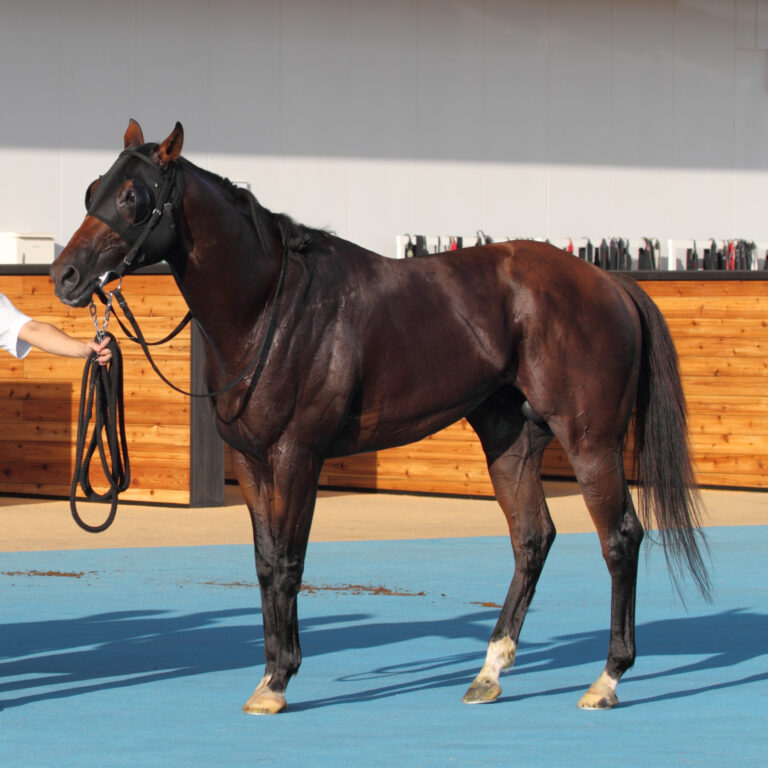
In what could be a leap forward for equine science, a Martin-Gatton College of Agriculture, Food, and Environment researcher, is helping spearhead a three-year project to map the genetic blueprints of 13 horse breeds and their relatives.
Funded by a $765,000 grant from the USDA National Institute of Food and Agriculture, this initiative, called “Functionally Annotated Equine Pangenome with Infrastructure for an Accessible, Integrative, Community Genomics Resource,” aims to further understand equine genetics. It also hopes to pave the way for advancements in health, performance, and disease prevention through equine genetics.
“Traditionally, genetic research has relied on a single reference genome for a species, which can exclude breed-specific variations. In contrast, a pan-genome integrates multiple reference genomes, capturing the unique genetic features of different breeds,” said Theodore Kalbfleisch, professor of veterinary science at the UK Maxwell H. Gluck Equine Research Center. “This comprehensive approach helps scientists see the full genetic diversity within a species, crucial for understanding traits like temperament, well-being, and disease susceptibility.”
Project Scope and Goals
Kalbfleisch and his multi-university team will generate accurate, haplotype-resolved genome assemblies for 13 horse breeds, including the Arabian, Belgian, Icelandic, and Thoroughbred. They will also extend this study to include a zebra and donkey. By comparing these genomes, researchers aim to identify the genetic factors that influence traits such as temperament, well-being, and susceptibility to diseases.
The team will use advanced sequencing technology to map the horses’ DNA and RNA. DNA holds the genetic instructions for long-term traits, while RNA shows which DNA parts are actively making proteins—the essential components of life.
This involves several key steps:
1. DNA Sequencing: The genomic DNA (gDNA) of each breed will be sequenced to identify the complete set of genes.
2. RNA Analysis: RNA, which is produced from DNA and used to make proteins, will be analyzed to understand which genes are active in different tissues.
3. Annotation: The RNA data will be mapped back to the gDNA, identifying which parts of the genome are being used to produce proteins. This helps in understanding the function of specific genes.
4. Comparison: By comparing the genomic data across different breeds, researchers can identify genetic differences that contribute to unique traits in each breed.
This research can improve horse health, performance, and breeding decisions in the equine community and in other agricultural animals. Moreover, the findings will be shared on a genomics platform for easy access by everyone, regardless of bioinformatics expertise.
The project’s anticipated outcomes include:
- Improved Health and Performance: Insights into genetic factors that affect health and performance, enabling targeted breeding programs.
- Disease Prevention: Identification of genetic markers for diseases, allowing for early detection and prevention strategies.
- Enhanced Understanding: A deeper understanding of equine biology and evolution through comprehensive genetic data.
“This project is not just about horses,” Kalbfleisch explained. “It sets a precedent for genetic research in other agricultural animals. The techniques and tools from this project can benefit other species, advancing genetic studies and boosting animal health and productivity universally.”
Also involved in the study are researchers from Texas A&M, the University of Nebraska-Lincoln, and the University of Minnesota.
Related Reading
- Does Inbreeding Contribute to Pregnancy Loss in Thoroughbreds?
- Equine Reproductive Research: Focus on the Stallion
- Risk Factors for Equine Recurrent Uveitis
Stay in the know! Sign up for EquiManagement’s FREE weekly newsletters to get the latest equine research, disease alerts, and vet practice updates delivered straight to your inbox.








